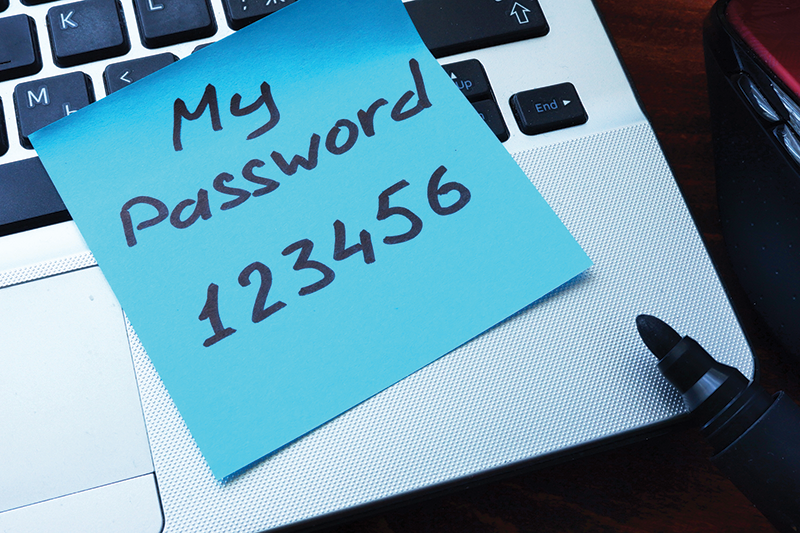Weak passwords commonly used in the construction industry

|
Recent research from digital security company NordPass has revealed workers in the construction and manufacturing industries use shockingly weak passwords for workplace accounts. Weak passwords enable hackers to access accounts more easily.
The top 10 passwords used in the construction and manufacturing industries are:
- Company name*
- password
- aaron431
- 123456
- Company name eu*
- 123ccp
- pass1
- Company name*
- Company name*
- Company name*
*This password is a company’s name or a variation of it (e.g. Company name2002).
Researchers analyzed data from public third-party breaches that affected Fortune 500 companies. The data included 15,603,438 breaches and were categorized into 17 industries. Researchers determined the top 10 passwords used in each industry, the percentile of unique passwords and the number of data breaches affecting each industry. The construction and manufacturing industries experienced 298,703 breaches; the percentile of unique passwords is 24%.
“Businesses and employees have a duty to protect their customers’ data,” says Chad Hammond, security expert at NordPass. “One employee’s weak password could potentially jeopardize the whole company if an attacker used the breached password to gain access to sensitive data.”
According to a recent IBM report, the average global cost of a data breach is $3.86 million. For U.S.-based companies, the cost is even higher—$8.64 million. Costs usually come from lost business resulting from customers’ diminished trust; fees associated with detection, escalation and notification of the breach; and post-response activities, such as credit report monitoring.
Employers and employees can take steps to help keep their accounts safe. Passwords should be unique, updated regularly and stored in a password manager. Multifactor authentication can be used where available for an added layer of security. Employers should educate employees regarding password hygiene and potential risks and remind employees not to mix their work and personal accounts.
Management trends emerge in construction industry
The COVID-19 pandemic has changed the way many industries—including construction— conduct business. Innovative solutions are becoming more widespread and are redefining how the construction industry will operate in a post-pandemic world, according to forconstructionpros.com.
The pandemic reportedly has decreased the time it takes to adopt some trends from three years to less than one year. Following are some trends that have taken hold.
- Workforce safety and protective equipment. Before COVID-19, employers had been slow to adopt wearable technology. Now, more employers are incorporating wearable technology— such as smart watches or smart construction helmets—to reduce safety threats on job sites, monitor workers who are not social distancing and for contact tracing.
- Use of efficient technology. Contractors have increased use of efficient technology—such as drones, building information management and augmented reality—to help streamline project management, achieve effective results and reduce costs.
- Remote work and mobile access. Frequent use of remote and mobile applications resulting from the pandemic reveal avenues for communication, inspection and accountability during all stages of a project, such as apps for virtual meetings or measuring assistant apps. Mobile access allows the workforce and management team to communicate efficiently and avoid delays, boosting productivity.
- Construction management software solutions. The use of management software to streamline project tasks and reporting has gained ground in the construction industry. It allows remote access so companies can more easily manage projects, as well as plan and organize present and future projects, with increased efficiency and greater accuracy.



